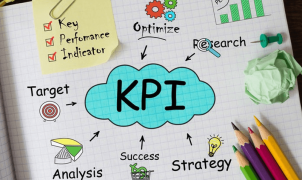
In the modern business landscape, financial management stands as a pivotal element that can make or break an organization’s success. The intricate process of overseeing budgets, tracking expenses, and ensuring compliance with tax regulations demands precision and efficiency. Enter accounting software, a technological solution that not only simplifies financial management but also empowers businesses with real-time insights and strategic advantages. In this article, we delve into the realm of financial management and explore how accounting software emerges as a guiding light to streamline business finances.
Understanding Financial Management’s Significance
Financial management serves as the bedrock of any thriving business. It involves a strategic approach to handling financial resources, optimizing revenue, and maintaining a balanced budget. Businesses must accurately monitor financial inflows and outflows, ensuring that every decision aligns with overarching financial goals. Efficient financial management facilitates resource allocation, empowers informed decision-making, and supports sustainable growth.
The Evolution from Manual to Digital Financial Management
Gone are the days when financial management was synonymous with stacks of paper and manual calculations. The digital era has ushered in a transformative wave of technological solutions, with accounting software at the forefront. This software revolutionizes financial management by automating processes, minimizing errors, and providing real-time access to critical financial data.
The Role of Accounting Software in Streamlining Business Finances
- Efficiency Through Automation: Accounting software eliminates the need for manual data entry and calculations. Tasks that previously required hours of labor are now automated, allowing finance teams to allocate their time to strategic analysis and decision-making. From tracking transactions to reconciling accounts, automation enhances efficiency, reduces the risk of errors, and accelerates financial processes.
- Real-Time Insights for Informed Decisions: One of the most significant advantages of accounting software is its ability to provide real-time insights into an organization’s financial health. Users can access up-to-date reports on cash flow, expenses, and revenue, enabling them to make informed decisions on the fly. Whether it’s identifying areas for cost-cutting or seizing growth opportunities, real-time data empowers proactive decision-making.
- Precision and Accuracy: Accuracy is paramount in financial management. Accounting software ensures precise calculations, minimizing the risk of human errors. From calculating taxes to generating financial statements, the software guarantees accuracy, which is essential for compliance, financial reporting, and building investor trust.
- Tax Compliance Made Effortless: Navigating the complexities of tax regulations can be a daunting task for businesses. Accounting software simplifies tax compliance by automatically calculating tax obligations, tracking deductible expenses, and generating the necessary reports for tax filings. This feature not only saves time but also minimizes the risk of non-compliance penalties.
- Remote Collaboration and Accessibility: With the rise of remote work, accessibility to financial data from various locations has become crucial. Cloud-based accounting software allows multiple team members to collaborate seamlessly, access data remotely, and update records in real time. This collaborative approach enhances communication, eliminates data silos, and fosters cohesive financial management.

The Essence of Financial Management
At the core of every successful business lies a well-orchestrated financial management strategy. Efficient financial management involves a delicate balance of budgeting, tracking expenses, monitoring revenue, and ensuring compliance with tax regulations. It’s not just about crunching numbers; it’s about understanding the financial pulse of your enterprise and making informed choices that fuel growth.
The Rise of Accounting Software
Gone are the days of manual ledgers and stacks of receipts. Enter accounting software, the digital companion that transforms the complex world of financial management into an organized symphony. These software solutions, ranging from renowned names like QuickBooks to modern cloud-based platforms, bring a plethora of benefits that resonate with businesses of all sizes.
Streamlined Efficiency
The days of painstakingly recording every transaction are over. Accounting software automates mundane tasks, such as data entry and reconciliation, freeing up valuable time for strategic financial analysis. With just a few clicks, you can generate reports, balance sheets, and profit and loss statements that once demanded hours of manual labor.
Real-Time Insights
Imagine having your finger on the financial pulse of your business at any given moment. Accounting software offers real-time insights into your financial health. You can track cash flow, monitor outstanding payments, and project future financial scenarios, enabling you to make proactive decisions that steer your business towards success.
Enhanced Accuracy
In the world of finances, accuracy is paramount. Accounting software eliminates the risk of human errors often associated with manual calculations. Automation ensures that calculations are precise, reducing the potential for costly mistakes that could impact your bottom line.
Navigating Tax Complexity
Tax regulations are a labyrinth that businesses must navigate. Accounting software acts as a guiding compass, helping you maintain compliance with tax laws. It automatically calculates tax obligations, tracks deductible expenses, and generates reports needed for tax filing, saving you from the stress of last-minute scrambles.
Collaborative Power
Modern accounting software transcends traditional boundaries. Cloud-based solutions allow multiple team members to access and update financial information from different locations. This collaborative approach enhances teamwork, facilitates timely decision-making, and provides a holistic view of your financial landscape.

Final Thoughts
In the symphony of business operations, financial management holds the conductor’s baton. And with the harmonious integration of accounting software, that baton becomes a wand of strategic empowerment. Whether you’re a startup navigating uncharted financial waters or an established enterprise seeking efficiency, accounting software serves as your steadfast companion, guiding you through the complexities and helping you navigate towards a financially thriving future.
Choosing the Right Accounting Software
Selecting the appropriate accounting software for your business is a critical decision. Consider factors such as the size of your organization, industry-specific needs, scalability, and integration capabilities. Popular options include QuickBooks, Xero, FreshBooks, and Zoho Books. Evaluate each software’s features, user-friendliness, customer support, and pricing to determine the best fit for your business.
In Conclusion
The journey of financial management has transitioned from manual ledger entries to the seamless integration of accounting software. This technology empowers businesses to navigate the complexities of financial management with precision, efficiency, and strategic insight. Whether you’re a startup aiming for growth or an established enterprise seeking operational excellence, accounting software serves as a compass that guides you through the intricate terrain of financial management. Embrace the power of technology, and embark on a journey to streamline your business finances for a prosperous future.

















































































































































